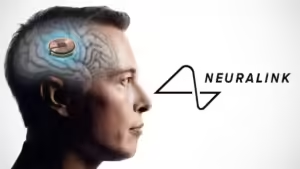
Elon Musk’s brain implant startup Neuralink is accepting applications for a second participant in a human clinical trial to test its device, the billionaire announced on Friday.
The request comes five months after Neuralink implanted a brain chip into the first human research participant, 30-year-old Noland Arbaugh, and Neuralink encountered unexpected problems with the implant. This happened just one week after he admitted that he had done so. Neuralink said the thread connecting the chip to Arbaugh’s brain had receded, causing performance issues, but the company said it had made adjustments to improve functionality.
Still, Arbaugh says the implant, which allows his brain to control a computer cursor, has changed his life. Arbaugh has been paralyzed since 2016 after a diving accident. “It’s a game-changer because I don’t have to get up in the morning anymore,” Arbaugh said in an interview on Good Morning America on Friday. “I was really happy to be a part of something that I think is so monumental. This is the next step in helping people who are paralyzed.”
Now, Neuralink is looking for more people like him to test its brain chips. “If you have quadriplegia and want to explore new ways to control your computer, we encourage you to participate in our clinical trial,” the company said in X.
Ultimately, Neuralink’s goal is to use implants to connect the human brain to computers, allowing paralyzed people to control smartphones and computers, for example, and blind people to regain their sight. is. Similar to existing brain-machine interfaces, the company’s implant collects electrical signals sent from the brain and interprets them as movement.
Participants in the current study will take part in what Neuralink is calling the PRIME study, short for Precise Robotically Implanted Brain-Computer Interface. Its purpose is to investigate the safety of implants and surgical robots and test the functionality of its devices, the company explained in a 2023 blog post.
The company said the study also “included patients with limited or no use of their hands due to cervical spine injury or amyotrophic lateral sclerosis (ALS).”
The patients in the study will have a chip surgically inserted into the part of their brain that controls their intention to move. The chip then records brain signals and sends them to the app. Neuralink previously explained that its initial goal was to “allow people to control their computer cursor and keyboard using just their thoughts.” About a month after the surgery, Musk said Arbaugh was able to use his brain to control a computer mouse. Neuralink later released a video showing Arbaugh playing chess on a computer using only his brain.
But after her device encountered an unexpected problem that affected its data processing speed and performance, Arbaugh told Good Morning America that she “cried after that.”
“It was very, very difficult to give up all the great things that I could do,” he said, However, Neuralink says the issue was part of a learning process.
“The reason we do clinical trials and early feasibility studies is to catch these kinds of problems as quickly as possible before they go to market,” said DJ Seo, who co-founded Neuralink with Musk. he told Morning America. “We worked hard to find various ways to restore Noland’s performance, and we were successful in doing so.”
In the near future, consumers will not have widespread access to this technology. Neuralink’s brain implant will require broader regulatory approval before it can reach a broader market.